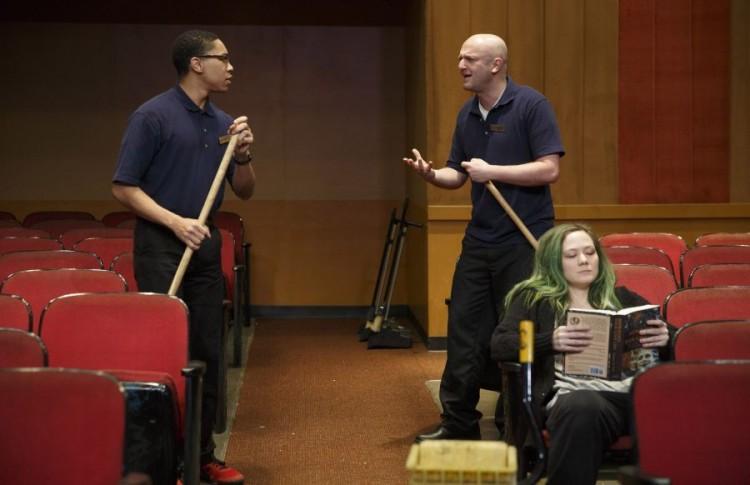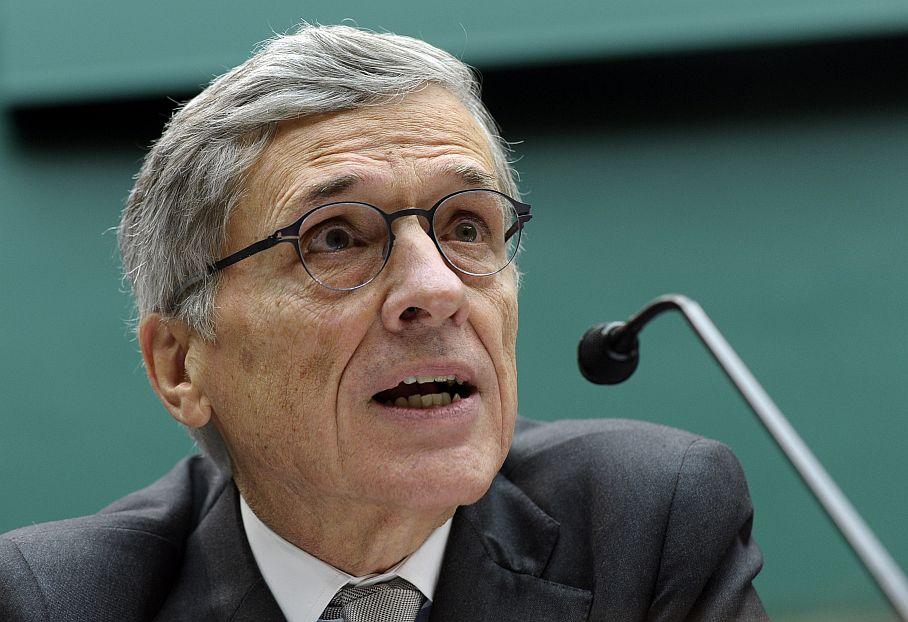NEW YORK—Annie Baker’s new play, “The Flick,” is such a mélange of ideas and events that it’s difficult to know where to begin. Is it about the lives of the characters presented? Is it about 35 millimeter film being abandoned in favor of the new digital?
And why does it take so long to tell its story? After being informed that the production was to take three hours, I was ensconced in my seat for three-and-a-half hours in a preview performance just two days prior to opening. Perhaps there will be some tightening by opening night.
Not that there weren’t some funny and interesting moments, and I’ll do my best to relate them.
Three employees operate a run-down movie house in a small town in current day Massachusetts. They are Sam (Matthew Maher), primary cleaning man, newly hired Avery (Aaron Clifton Moten), and projectionist Rose (Louisa Krause).
Early scenes show Sam teaching Avery the ropes: how to sweep effectively between the rows, how to get rid of objectionable throwaways, such as chocolate tapioca pudding. More disgusting items are mentioned as Avery is very sensitive to unpleasant odors. The teaching process goes on for a long time—very long.
Another potent character is the audience section of the movie house itself, provocatively and handsomely designed by scenic designer David Zinn (who is also responsible for the appropriate clothing for the movie house employees).
Seven rows of slightly soiled red velvet seats are separated by an aisle, with a small projection booth high upon the rear wall (there are clever lighting effects by Jane Cox), in which Rose, and later, Sam and Avery, can be seen working on the projection equipment.
Early scenes involve discussion of Sam’s possible attraction to Rose, whom he at first considers unattainable. Sam and Avery also vie in quoting pairs of movie actors in remotely remembered (at least by me) films—such as Tom Cruise and Dakota Fanning in “War of the Worlds.”
Sam and Rose finally get around to educating Avery on what they call “dinner money,” in which they daily split up certain receipts between them, a regular happening never noticed by their clueless boss Steve. At first Avery, taking an ethical stance, refuses the deal, but finally reluctantly gives in to keep the system consistent.
After the first act (2 hours, 20 minutes long!), the second act becomes more active. Conflict arises: Sam’s jealousy is aroused by Rose teaching Avery how to run the projector; Rose rejects Sam’s amorous advances; Avery, who has approached the new boss (Steve has sold to a digital entrepreneur), is fired, as the new boss discovers the secret of the dinner money.
The others stay on, but Avery doesn’t have to worry as his father teaches at the college that Avery attends, and he will go on to better things.
As the play ends, we see Sam training a new cleaning man, Skylar (Alex Hanna).
There were some amusing moments, enjoyed mostly by the younger viewers in their 20s and 30s. I felt that much of the material in Act 1 could be effectively emended.
Playwright Annie Baker, a multiple theater award winner for her prior “Circle Mirror Transformation” has here failed to meet her own mark. Sam Gold, himself an Obie Award winner, directed “Circle Mirror Transformation” as well as “The Flick.”
Performances, as is so often the case in so much of New York theater, are excellent, though not vivid as the material does not lend itself to vivid performing.
Diana Barth publishes New Millennium, an arts publication. For information: [email protected].



